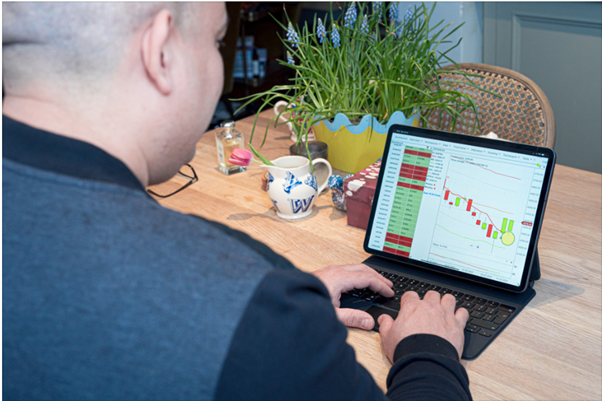
When you’re learning how to start trading, you’ll come across lots of new words and concepts. Are you familiar with Ethereum? How about EUR/USD or Brent crude? What about pips, spread betting and leverage? Trading is a whole other world, with its own jargon and systems and software. Whether you want to learn how to trade stocks, forex, commodities or cryptos, there’s a right way to go about it.
Useful tips for learning how to start trading
The key thing to remember is going at your own pace and not laying your hard-earned money on the line until you’re confident you know what you’re doing. Even experienced traders still make losses, but feeling confident in your knowledge and trading skills is vital. Let us help you out with this handy guide about how to start trading.
1. Take a trading course
Investing some money in a quality trading course can save you from making uninformed and overly risky trades. Whilst a good trading course costs money, it can also stop you from losing money down the line – and even help you win more.
Not every experienced trader has taken a trading course – but lots of experienced traders are great teachers! A quality trading course will usually be led by a successful trader, so you can learn how to start trading with strategies from someone who really gets them.
Of course, you can learn to trade without a trading course. However, attending the right webinars and learning from experts can help you greatly increase your understanding and confidence, making you feel like an experienced trader straight out of the gate.
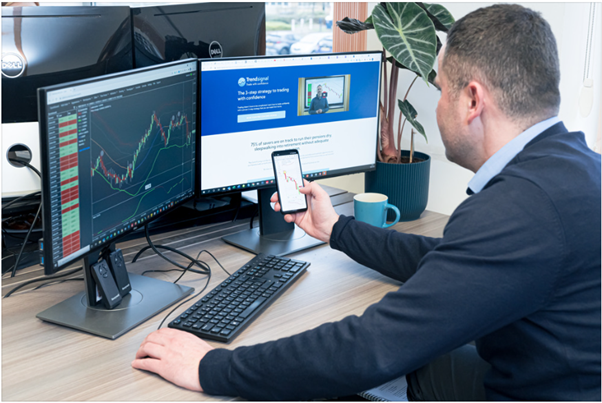
For some useful tips on how to start trading with the right trading course for you, read our blog post Are Trading Courses Worth It?
Taking a trading course will help you very much with the next couple of steps you have to take - learning the markets, and learning how to analyse them and the charts.
2. Learn to read the markets
When you learn how to start trading you will discover there are many markets and styles of trading to consider. For example, you might start with stocks or forex but then decide you want to learn about crypto. So, it is good to give yourself a general understanding about the different markets by reading financial websites, tutorials and blogs, books – there’s a huge amount of info out there. Try not to focus on any one part of the trading game too narrowly until you know a little more about it. Get a broad view of everything instead. This way, you won’t back yourself into a type of trading that doesn’t work for you in the long run.
You could start following the way the individual markets move every day in your spare time. Read about the overnight price action on foreign markets, or take some time on your lunch break to read a chapter of a book about trading.
If you don’t know where to start looking for information, try news sites like Yahoo or Google Finance, CBS MoneyWatch, The Wall Street Journal and Bloomberg. You could also try to tap into market coverage on social media sites like Twitter by following successful traders. You’ll be able to find information and opinion pieces on just about every major social media platform. There are also podcasts, documentaries, bloggers, and so much more.
Some great books on how to start trading
It won’t get you the specific trading skills or strategy you can get by following a decent trading course, but if you are teaching yourself how to start trading, then this reading and research is important.
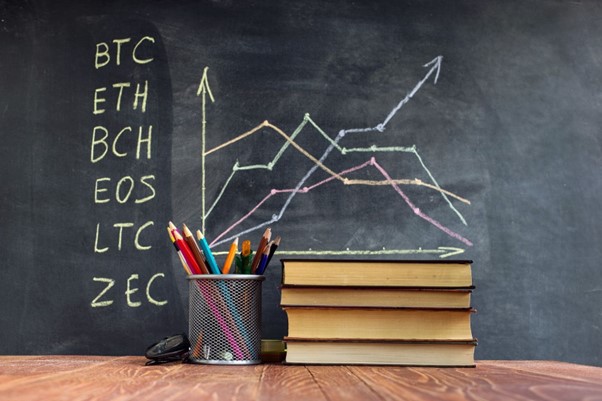
To start you off, here are 3 must-read books for both beginner and experienced traders:
- Technical Analysis of the Financial Markets by John Murphy.
Widely regarded as the bible for traders, it covers everything from basic concepts through to advanced indicators, and includes more than 400 charts to help bring technical analysis to life. Get good at reading these patterns and you will be able to spot potential trade set-ups on your charts.
Check out this ‘must-read’ trading book for beginners and experts
- Market Wizards by Jack. D Schwager.
If you’re looking for tips from experts, this is a great way to start. The book is an anthology of interviews with the world’s best traders and investors, like Bruce Kovner, Paul Tudor Jones, and Richard Dennis. It’s a must-read book on trading for beginners , but more experienced traders will learn lots from it too.
The book includes the stories of a hedge fund manager who averaged an annual growth rate of 30% for more than 20 years, and a T-bond futures trader who turned $25,000 into $2 billion in a single day. In their interviews, the expert traders reveal the things that separate them from the masses. These stories are an entertaining read, but the book’s real value lies in the way it shows that luck or rare personal attitudes aren’t the magic touch you need to be a successful trader: it’s all in having a solid methodology and the right attitude.
- Trading for a Living by Dr. Alexander Elder.
This book helps you master both individual psychology and mass psychology, useful when you learn how to start trading. It will also help you with classic charting, trading systems, risk management and psychological indicators.
There are plenty of other trading books, of course. The point is that, when you are learning how to start trading, especially if you are learning on your own without a trading course , it’s good to learn as much as you can by reading from experts.
3. Learn to analyse the charts
Some traders swear by technical analysis, whereas some prefer fundamental analysis. If you’re a beginner, you may have no idea how these two things work or even what the difference is . No matter which method of analysis you end up preferring, learning how to do it is vital to identify good potential trades if you are not following a proven trading course .
For short-term trading, technical analysis is perhaps more useful, and it’s also handy to help you figure out your timing (when to buy and sell). Fundamental analysis tends to be more useful for longer-term trading or investing.
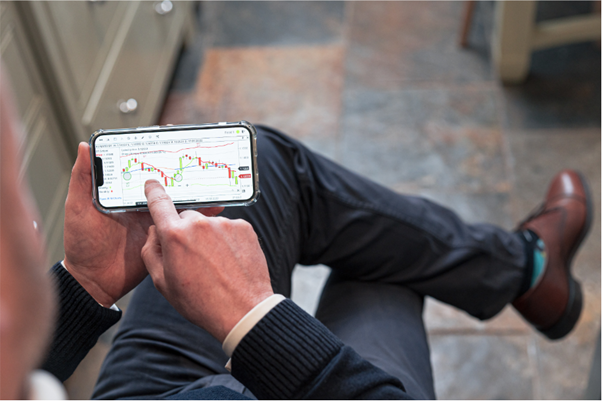 .
.
It’s helpful to examine charts in different time frames, such as hourly, daily, weekly and even monthly charts. This allows you to examine the detail of how the price of an asset or market moves. In turn, this means you can identify trends in the market and potentially spot trade opportunities.
At Trendsignal, we have various trading courses that focus on different timeframes to suit your preferences. Our courses teach you concrete trading strategies using tried and tested indicators, as well as psychology, money management and how to trade with confidence. You can read more about our trading courses here.
4. Open a trading account
This might seem like stating the obvious – but it’s your next step. Do your research and find a decent broker or exchange, and get familiar with how their platform and interface works.
When searching for a broker, look for good reviews, both on and off their site. Make sure you can confirm that they are credible before starting to trade through them. Some trading and investing sites like Investopedia offer online broker reviews and helpful tips to make sure you find the right broker or platform for you.
Investopedia also has a free stock market simulator, so that you can get ahead of our next tip – practising trading.
5. Get practising
The time has come to start trading! Dip your toes into the water with a free trading simulator or demo account. Virtual trading is often offered by most brokers or spread betting platform providers as a way to learn their interface. This allows you to follow real time market actions, and make buying and selling decisions, while you learn how to start trading, without actually having to use money. Make lots of these trades, using different strategies, and analyse your results.
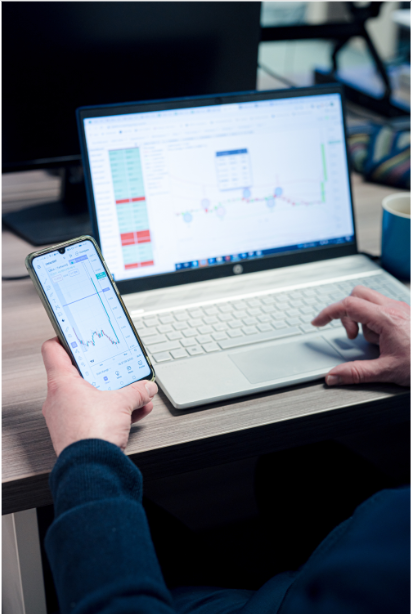
When you’re confident that you understand how to start trading, you should make the switch to real money. However, it’s important to start small. When paper trading, you don’t engage with any real risk, and it's that risk that helps build the trading mindset. You can only experience actual risk, profit, and loss by putting your own real money on the line. This is why it is important to start with small sums – or amounts that you are comfortable to potentially lose.
Your baby steps as a trader need to be made towards growing in confidence, but also letting yourself experience risk as you learn to master your trading psychology . Discipline, mental fortitude and trading acumen come later.
Other ways to practice and learn trading
Experience is a great teacher, and it’s hard to go forward with confidence on your trading journey when you don’t have any under your belt. This is where trading courses come in handy.
Trading courses are offered for all levels of traders, and should be taught by people who are experienced traders themselves. You’ll learn concrete trading strategies, as well as indicators to look for, and how to analyse charts. You’ll also gain valuable insight into the market.
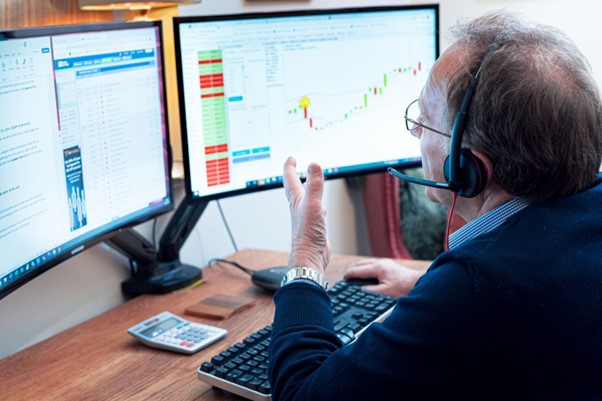
Trendsignal's trading courses will help you with all this and more. Our courses also offer personal 1 to 1 coaching sessions. The lessons are tailored to you, so you can work them around your lifestyle. You’ll learn tried and tested strategies from successful traders who started out as Trendsignal students themselves. You can participate in online workshops and Q&As, including watching live trades and analysis.
Most beginners start with our flagship Trendsignal Plus Trading Course , which gives you everything you need to learn how to start trading with confidence. If this sounds like what you need, get in touch with us or use the green ‘Book Free Webinar’ button at the top of this page to find out more about this trading course and our award-winning strategies.






